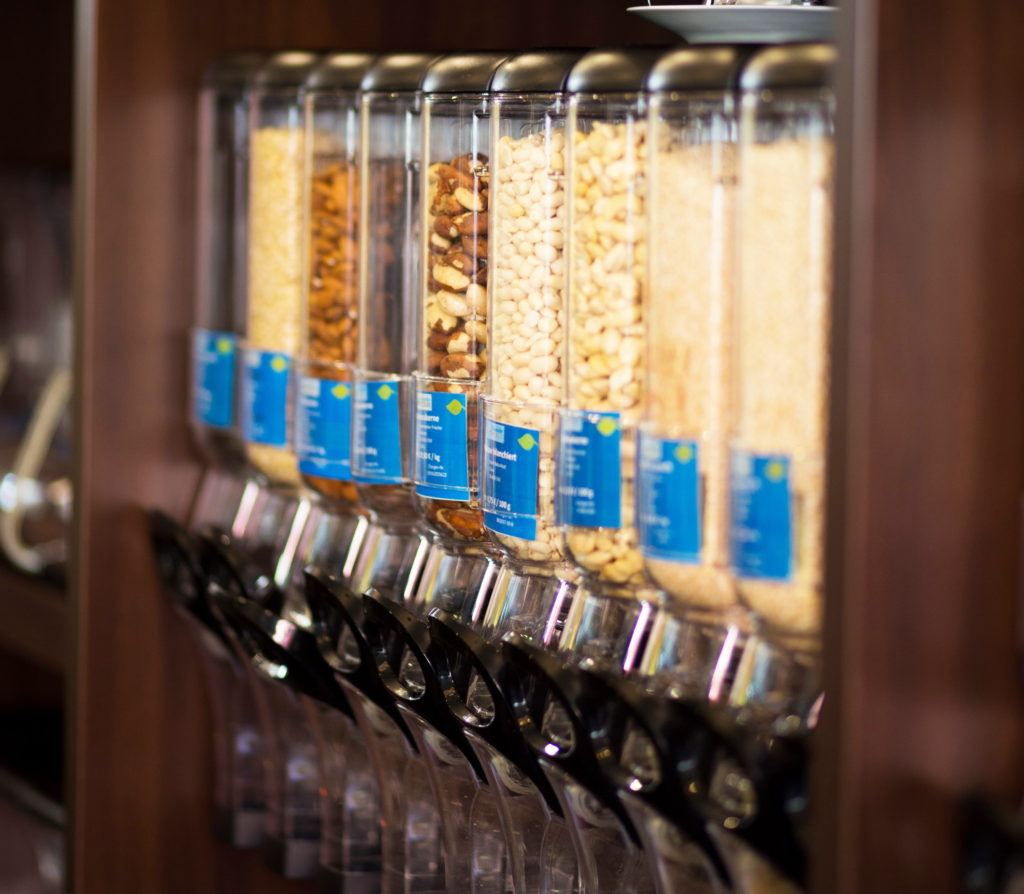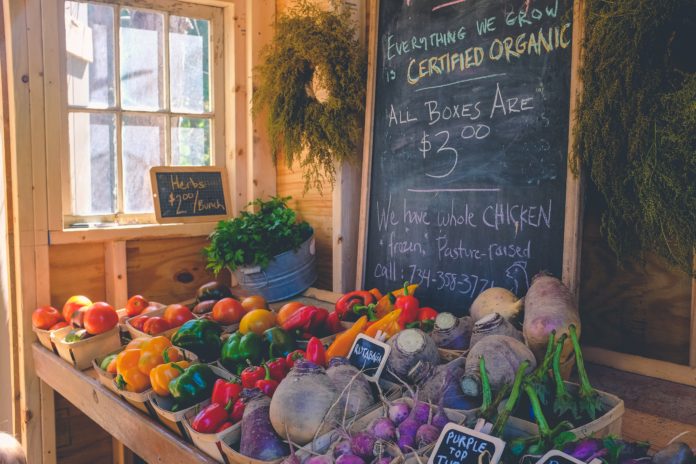I previously wrote about conscious consumerism or ethical consumerism in this article, where I settled on the following definition:
“A conscious consumer is an agent of change who considers the social, environmental, ecological, and political impact of their buycott and boycott actions.”
But I know from personal experience that it can be tough to know where to begin, so here are six ways to start making more conscious and ethical changes to your life today:
1. Educate yourself
There is no shortage of information about conscious and ethical considerations available on the internet and social media, but a good entry point for many is watching one of the excellently researched and produced documentaries that are readily available on Netflix or Youtube.
The following are a few highly rated ones, road tested to open people’s eyes to some of the key issues:
The True Cost (2015)
An honest look at at the human and environmental costs of the fashion industry.
Cowspiracy (2014)
Cowspiracy explores the environmental impact of animal agriculture – the leading cause of carbon emissions, global warming, deforestation.
Forks Over Knives (2011)
Forks Over Knives examines the profound claim that most, if not all, of the chronic diseases that afflict us can be controlled or even reversed by rejecting animal-based and processed foods.
Earthlings (2005)
An in-your-face and revealing documentary about humanity’s exploitation of other animals as pets, food, clothing, entertainment, and for scientific research.
2. Buy Less
The most significant way you can reduce your impact on the planet is simply by buying and consuming less.
Building a resistance to the thousands of marketing messages we are hit with every day and instead abstaining as much as possible from the constant churn of capitalism.
It is estimated that only 1% of the materials used to produce consumer goods are still in use six months after they are bought. Think about that for a second – we literally throw away 99% of what we buy! That’s crazy!
So the next time you are tempted by that impulse to buy a new pair of jeans, or a mobile phone upgrade, question do you really need them?
Think about what you already have at home barely used. If you’re still confident it’s something you do really need, consider if you can borrow from a friend or neighbour, or if you might be able to find one secondhand.
Of course, we all have needs from time to time. It’s delusional to think that we could live in this modern world without buying another product. But we can train ourselves to more carefully weigh up each purchase and consider if we could also meet our needs without placing any new stress on planet earth’s fast dwindling resources.
3. Shop smarter
If you must buy new goods or services then be aware that with every purchase we make we’re choosing to support the business, process and supply chain behind that product or service.
It’s effectively a vote that says, “I’m OK with this, carry on.”
Therefore, if you believe that the farmers that grow the bananas you eat should get a living wage for their efforts, then buy fair-trade.
If you believe that children shouldn’t suffer in inhumane conditions to produce the clothes you wear then there are plenty of big name brands and retailers you should avoid.
If you want our oceans and all the life within them to live beyond 2048 (the generally accepted deadline for the collapse of all commercial fisheries at latest estimates) then you should be avoiding all single-use or virgin plastics.
Because every purchase that we make supports a certain way of doing things.
Only if a significant number of people choose to stop supporting practices they disagree with by funding them through purchases will businesses realise they need to change.
The good news is that it’s never been easier to find ethical alternatives and vote with your wallet, with a fast growing number of producers focusing on organic, non-GMO, sustainable & ethical means.

The mobile app Good on You rates all major fashion brands according to their ethical credentials.
Meanwhile EWG’s Skin Deep cosmetic database verifies thousands of products for men, women and kids that meet high ethical standards.
When it comes to food, the best thing you can do is get as close to the source as possible, which means frequenting your local farmer’s market, or better still, growing your own produce if you can.
4. Reduce your waste
This isn’t just about throwing less stuff away, it’s also about paying attention to the unnecessary packaging that comes with many new products, including the containers and bags that previous generations have taken for granted as being necessary.
Plastic in particular is one of the worst things we can possibly use given that we actually don’t know how many centuries it takes to break down – if ever.
Here’s a quick waste-reducing checklist:
- Carry cloth bags for your shopping.
- Reuse any plastic bags you have lying at home, donate, or sell them.
- Buy groceries in bulk to reduce packaging waste, ideally at a zero-waste store where you can fill your own containers.
- Carry a refillable non-plastic bottle for water, or eco-friendly cup for your tea and coffee.
- Never accept plastic spoons, forks and straws. Either carry your own sustainable set with you, or at least use eco-friendly options.
- Reduce how much you buy online – the packaging used is ridiculously and needlessly excessive.

5. Stop Eating Animals
The case for following a plant-based diet is now unarguable.
If you weren’t already perturbed by the thought of eating other living beings – perhaps you were brought up under the false illusion that the animals don’t feel pain or suffer any emotional distress – then maybe one of these compelling reasons will convince you:
Health: According to the Academy of Nutrition and Dietetics vegans are less likely to develop heart disease, cancer, diabetes, and high blood pressure than meat-eaters.
Environment: Meat production is wasteful, causes enormous amounts of pollution, and the industry is also one of the biggest causes of climate change.
Feed the world: Breeding animals for human consumption is an astonishingly inefficient use of the planet’s resources. For example, it takes up to 13 pounds of grain to produce just 1 pound of animal flesh. If the food we grew to sustain animal agriculture instead went directly to humans, we could end word hunger at least twice over.
Slim Down: Vegans are, on average, up to 20 pounds lighter than meat-eaters, and enjoy more energy on average due to their healthier meal choices.
Meat is disgusting: Animal flesh is often contaminated with feces, blood, and other bodily fluids, all of which make animal-derived foods the leading source of food poisoning.
Plant-based food is delicious: If your reference for vegan food is of a 1970s hippy eating mung beans and lentils then you’re in for a great surprise. From curries, to burritos, to burgers, ice cream and yes, even cheese, the explosion of interest in vegan lifestyles has spawned delicious, mouth-watering innovation, meaning that outdated perceptions of flavorless, boring meals are a relic of the past.
So, what are you waiting for? Give plant-based eating a try.
And whilst we’re on the subject of animals, you can also focus on buying cruelty-free products across fashion, cosmetics and homeware, including faux leather.
6. Take it one step at a time
It can be overwhelming when you first start to see behind the curtain.
I know from experience that it can feel like an attack on how we’ve lived our entire lives up until this point. It’s natural to feel defensive – indeed to experience a whole range of emotions. The sheer number of new considerations alone can blow our minds.
That’s why it’s important to start small and applaud yourself for making incremental changes.
Visit your local secondhand store before you go straight to the high street for a winter jacket. Visit your local farmers’ markets. Try switching the milk in your coffee to soy, oat or coconut milk.
Make small changes at first and be proud that you’re heading in a positive direction. Be kind to yourself. Say Yes to a slice of that delicious looking vegan cake at your local cafe, wear with pride that practically new peacoat you picked up at Oxfam.
We show the world who we are and what we stand for through the decisions and acts we make in every moment.
So what action will you start today?




